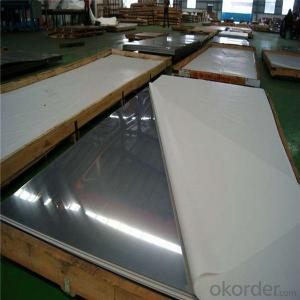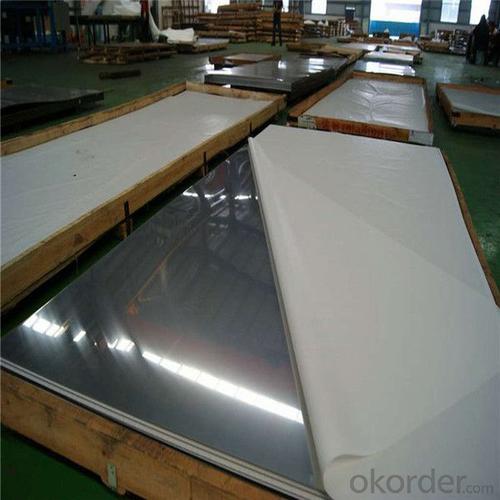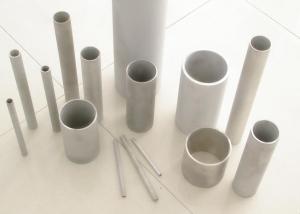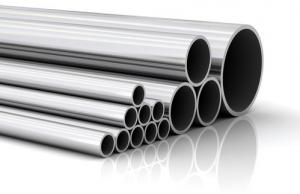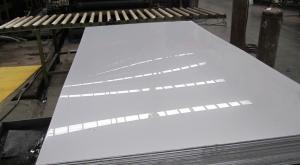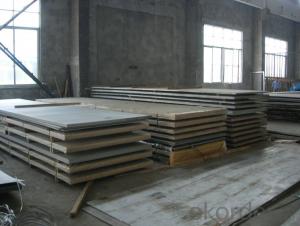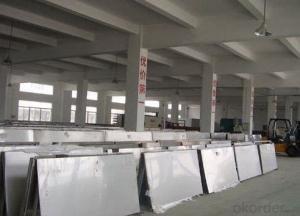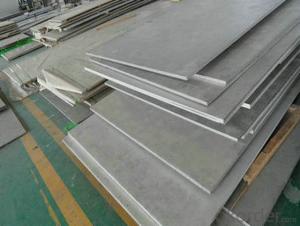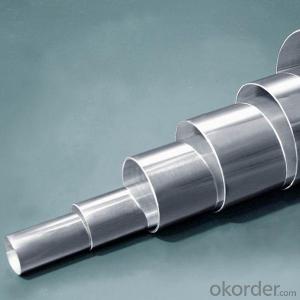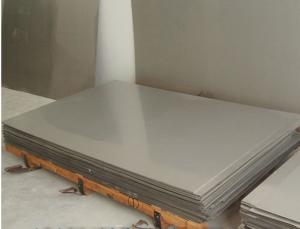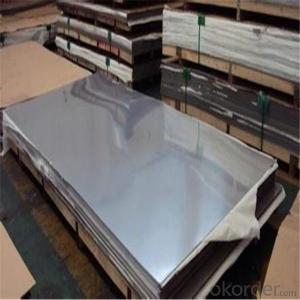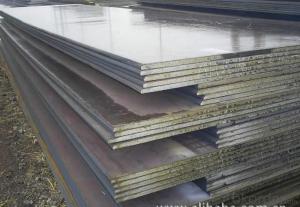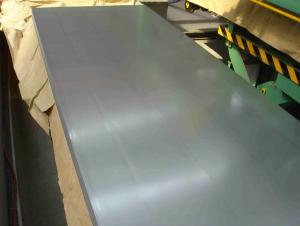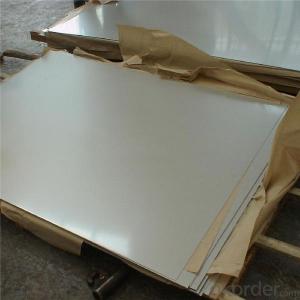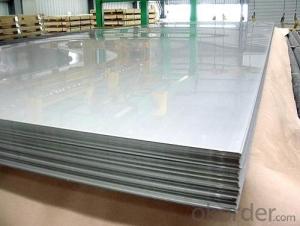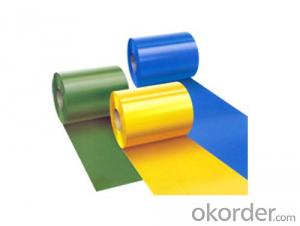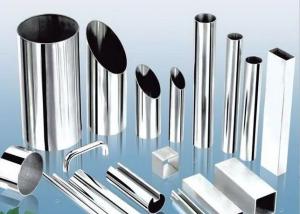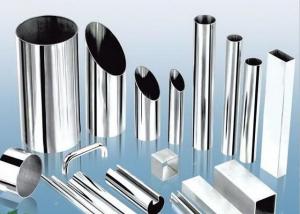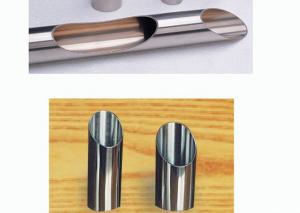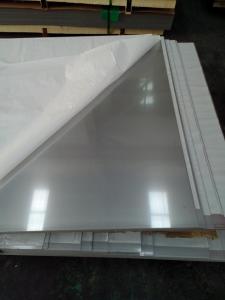201 304 Stainless Steel Sheets cold rolled
- Loading Port:
- Shanghai
- Payment Terms:
- TT OR LC
- Min Order Qty:
- 2 m.t.
- Supply Capability:
- 2000 m.t./month
OKorder Service Pledge
OKorder Financial Service
You Might Also Like
Specification
304 316 cold rolled stainless steel sheet
Standard:JIS,AISI,ASTM,GB,DIN,EN
Material:201,202,316,304,304L,316,316L,321,430,etc.
Thickness:0.5mm~2.0mm
Width: 1000mm~1250mm
Length:1000mm-6000mm or as your requirement
Finish:2B, BA, Hair Line, No.1,No.4, Mirror ,color,etching
Technique:cold rolled
Application:Stainless steel sheet applies to construction field, ships building industry, petroleum & chemical industries, war and electricity industries, food processing and medical industry, boiler heat exchanger, machinery and hardware fields.
Standard :AISI, ASTM, BS, DIN, GB, JIS
Certificate :ISO
Price:Attractive price and quality are perfect match
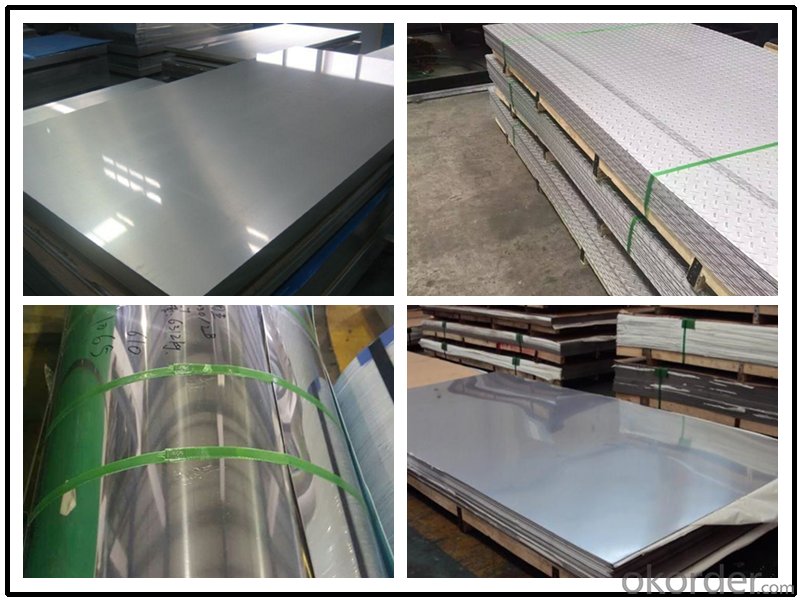
Packaging & Shipping
Trade terms:
Packing: Standard export seaworthy packing with waterproof paper,metal belt pack sheet,then put them in wooden pallet(or put them in wooden case),then put them in container or as customer's requirement.
MOQ: 5 metric tons
Shipping Term: FOB GUANGDONG or CNF import port
Delivery Time: 15 to 35 days after the receipt of the deposit
Payment Term: T/T 30% deposit, Balance against the copy of B/L; or L/C at sight
201 304 cold rolled stainless steel sheets
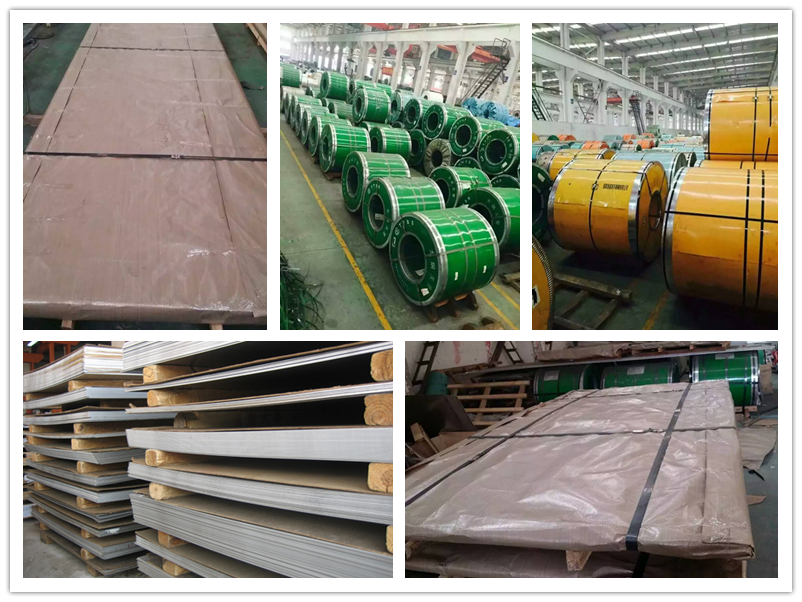
Application
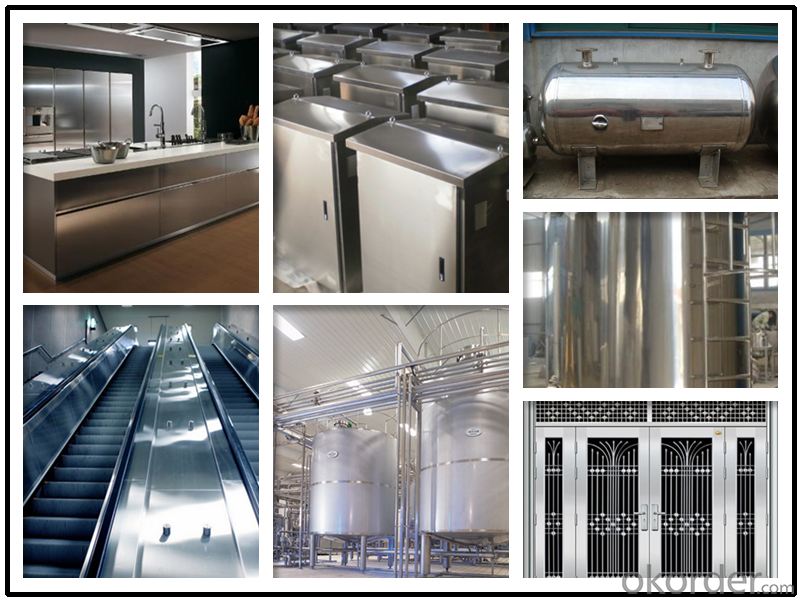
- Q: What is the price per square foot for stainless steel sheets?
- The price per square foot for stainless steel sheets can vary depending on factors such as thickness, grade, and quantity. It is recommended to contact suppliers or check their websites for the most accurate and up-to-date pricing information.
- Q: How are stainless steel sheets produced?
- Stainless steel sheets are produced through a process called hot rolling, where stainless steel ingots are heated and passed through a series of rollers to reduce their thickness and improve their surface finish. This continuous rolling process creates long sheets of stainless steel, which are then cooled and cut into desired lengths. The sheets may undergo further processing, such as annealing or surface treatment, before being packaged and shipped for various applications.
- Q: Can stainless steel sheets be used for countertops?
- Yes, stainless steel sheets can be used for countertops. Stainless steel is a durable and hygienic material that is resistant to stains, heat, and corrosion, making it an excellent choice for kitchen countertops.
- Q: How do you prevent fingerprints or smudges on stainless steel sheets?
- To prevent fingerprints or smudges on stainless steel sheets, there are several effective measures you can take: 1. Clean with a microfiber cloth: Use a soft microfiber cloth to wipe down the stainless steel surface regularly. Microfiber is known for its ability to attract and trap dirt, dust, and oils without leaving streaks or smudges. 2. Use warm soapy water: Mix a small amount of mild dish soap with warm water and gently wipe the stainless steel surface with a soft cloth or sponge. Rinse thoroughly and dry with a clean towel. This method effectively removes grease, fingerprints, and smudges. 3. Invest in stainless steel cleaners: There are numerous stainless steel cleaning products available in the market. These cleaners are specifically formulated to remove fingerprints, smudges, and restore the shine of stainless steel surfaces. Follow the instructions on the product for best results. 4. Apply a protective coating: Consider using a stainless steel protective coating or sealant. These products create a thin, invisible barrier that helps repel fingerprints and smudges. Apply the coating according to the manufacturer's instructions and reapply as needed. 5. Avoid abrasive cleaners or tools: Abrasive cleaners, scrub brushes, steel wool, or harsh chemicals can damage the protective layer of stainless steel, making it more prone to fingerprints and smudges. Stick to non-abrasive cleaning methods and tools to maintain the integrity of the stainless steel surface. 6. Handle with care: When touching stainless steel sheets, try to handle them with clean hands or wear gloves to prevent the transfer of oils or dirt. Avoid dragging objects across the surface, as this can cause scratches and make it more susceptible to smudging. By incorporating these preventive measures into your cleaning routine and handling practices, you can effectively minimize fingerprints and smudges on your stainless steel sheets, keeping them looking clean and pristine.
- Q: Are stainless steel sheets suitable for medical implants?
- Stainless steel sheets are indeed appropriate for medical implants. This is because stainless steel, which is commonly utilized in medical implants, possesses desirable qualities such as resistance to corrosion, strength, and biocompatibility. These sheets can be shaped and sized in various ways, making them adaptable for different types of implants. Moreover, stainless steel has been extensively researched and proven to be safe for long-term implantation in the human body. In addition, it is cost-effective when compared to alternative implant materials. However, it is crucial to emphasize that the particular grade of stainless steel and the surface finish play pivotal roles in determining its suitability for medical implants. The grade of stainless steel must meet biocompatibility and corrosion resistance standards, while the surface finish must be smooth to minimize the risk of infection and encourage proper tissue integration. In conclusion, stainless steel sheets are a dependable and widely utilized material for medical implants.
- Q: What is the formability of stainless steel sheets?
- The ability of stainless steel sheets to be shaped or formed into desired geometries without cracking, tearing, or losing their structural integrity is referred to as their formability. Stainless steel sheets are highly regarded for their exceptional formability, thanks to their unique combination of strength, ductility, and corrosion resistance. They can easily be bent, rolled, or stretched into various shapes, making them versatile for a wide range of applications. Furthermore, stainless steel sheets can maintain their shape even in extreme temperatures or harsh environments, thereby further enhancing their formability. However, it is worth noting that the formability of stainless steel sheets can vary depending on the specific grade, thickness, and surface finish. Higher grades of stainless steel typically exhibit better formability, while thicker sheets may require more force to shape. The surface finish, whether it is cold-rolled or hot-rolled, can also impact formability as it influences the material's grain structure and mechanical properties. Hence, it is crucial to comprehend the specific characteristics and limitations of the stainless steel sheet being utilized in order to determine its formability for a particular application.
- Q: What are the different types of stainless steel sheet surface textures available?
- There are several different types of stainless steel sheet surface textures available, each with its own unique aesthetic appeal and functional properties. Some of the most common surface textures include: 1. No.1 Finish: This is the most common and widely used surface finish for stainless steel sheets. It has a smooth, reflective surface that is achieved by hot rolling the steel and then annealing it. 2. No.2B Finish: This finish has a slightly rougher texture compared to No.1 finish. It is achieved by cold rolling the steel and then annealing it, resulting in a dull, matte appearance. 3. No.4 Finish: Also known as satin or brushed finish, this surface texture has a fine grain appearance with short, parallel lines. It is achieved by polishing the surface with abrasive belts or brushes. 4. Hairline Finish: This surface texture is similar to No.4 finish but has a finer grain appearance. It is achieved by polishing the surface with abrasive belts or brushes in a unidirectional pattern. 5. No.8 Mirror Finish: This is the most reflective surface texture available for stainless steel sheets. It has a highly polished and mirror-like appearance, achieved by further polishing the surface after No.4 finish. 6. Bead Blasted Finish: This surface texture is achieved by blasting the stainless steel sheet with fine glass beads or ceramic particles. It results in a textured, non-reflective surface with a uniform matte appearance. 7. Embossed Finish: This surface texture involves imprinting a pattern or design onto the stainless steel sheet. It can be achieved through mechanical embossing or by using a special roller during the manufacturing process. 8. Colored Finishes: Stainless steel sheets can also be coated with various colors to enhance their visual appeal. These colored finishes are achieved through processes like PVD (Physical Vapor Deposition) or powder coating, resulting in a durable and vibrant surface. These are just some of the many surface textures available for stainless steel sheets, each offering its own distinct look and feel. The choice of the surface texture depends on the desired aesthetic, functional requirements, and the specific application of the stainless steel sheet.
- Q: What are the benefits of using patterned stainless steel sheets in interior design?
- Patterned stainless steel sheets offer several benefits in interior design. Firstly, they add visual interest and uniqueness to a space, allowing for creative and innovative design possibilities. The patterns can range from subtle to bold, providing options to suit various aesthetics and design themes. Additionally, stainless steel is a durable material that is resistant to corrosion, making it ideal for high-traffic areas or spaces prone to moisture. It is also easy to clean, making maintenance hassle-free. The reflective properties of stainless steel can also help to brighten a room and create an illusion of increased space. Furthermore, patterned stainless steel sheets are versatile and can be used in various applications, such as wall coverings, backsplashes, countertops, or even furniture accents. They can be used to enhance both modern and traditional interior designs, adding a touch of sophistication and elegance. Overall, the benefits of using patterned stainless steel sheets in interior design include their aesthetic appeal, durability, ease of maintenance, versatility, and ability to enhance the overall visual appeal of a space.
- Q: Are stainless steel sheets suitable for high-traffic areas?
- Yes, stainless steel sheets are suitable for high-traffic areas. Stainless steel is known for its durability, strength, and resistance to corrosion, making it an excellent choice for areas that experience heavy foot traffic. It can withstand constant use and abuse, including scratches, dents, and impact, without compromising its structural integrity. Additionally, stainless steel sheets are easy to clean and maintain, making them ideal for areas that require frequent cleaning and disinfection. Overall, stainless steel sheets are a reliable and long-lasting option for high-traffic areas.
- Q: What are the different types of punched finishes available for stainless steel sheets?
- Stainless steel sheets offer a range of punched finishes, each with distinct qualities and advantages. Let's explore some of the most commonly used options: 1. Round Hole: This punched finish, which features evenly spaced round holes, is highly versatile and widely utilized. It enables effective airflow and visibility and finds applications in ventilation systems, decorative panels, and filters. 2. Square Hole: With a clean and contemporary appearance, the square hole punched finish is often chosen when a more geometric pattern is desired. It is commonly employed in architectural projects, screens, and fencing. 3. Slotted Hole: The slotted hole punched finish is characterized by elongated holes, providing larger openings for enhanced visibility or improved drainage. It finds uses in grilles, sunshades, and safety barriers. 4. Hexagonal Hole: Offering an aesthetically pleasing pattern, the hexagonal hole punched finish showcases hexagon-shaped holes. It is commonly used in decorative applications like wall cladding, signage, and artistic installations. 5. Decorative Patterns: In addition to the standard punched finishes, stainless steel sheets can be customized with various decorative patterns, including personalized designs, logos, or intricate shapes. This allows for a unique and personalized touch in any project. When choosing a punched finish for stainless steel sheets, it is crucial to consider the specific requirements of the application, including aesthetics, functionality, and performance. Key factors to consider include hole size, open area percentage, strength, and corrosion resistance.
Send your message to us
201 304 Stainless Steel Sheets cold rolled
- Loading Port:
- Shanghai
- Payment Terms:
- TT OR LC
- Min Order Qty:
- 2 m.t.
- Supply Capability:
- 2000 m.t./month
OKorder Service Pledge
OKorder Financial Service
Similar products
Hot products
Hot Searches
Related keywords
